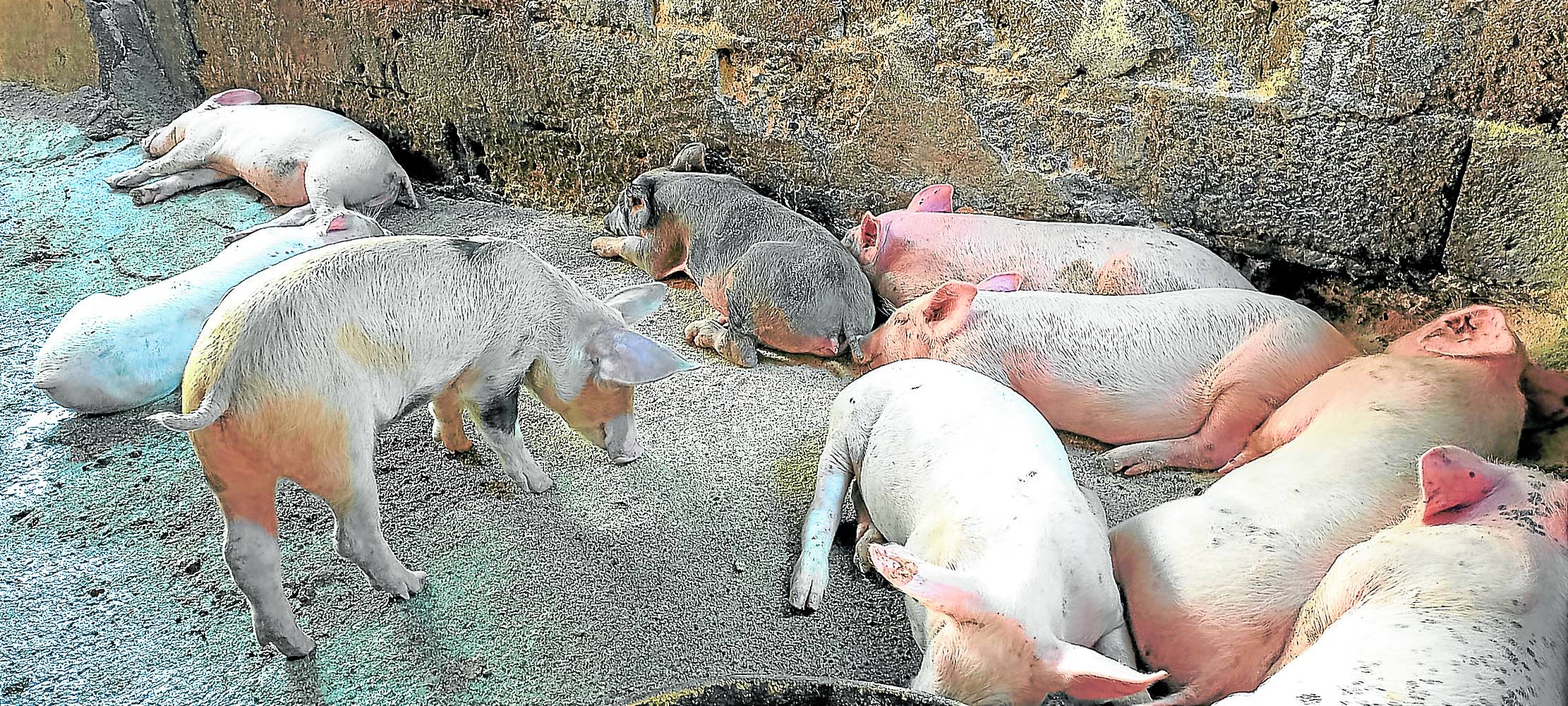
ENDANGERED Hogs in one of the piggeries in Mlang, Cotabato face the danger of getting contaminated after the African Swine Fever have spread to 10 villages of the town. WILLAMOR A. MAGBANUA
Faced with another crisis that may pressure food prices, President Ferdinand Marcos Jr. on Thursday vowed to ensure the safety of the country’s hog population as 10,000 vaccine doses against African swine fever (ASF) were expected to arrive on Friday.
“We are securing our hog industry with the upcoming rollout of an African swine fever vaccine for backyard and commercial farms, made possible through the generosity of our partners in the private sector, who have offered their cold storage facilities,” the President said after meeting with his Private Sector Advisory Council (PSAC).
READ: DA supplier donates vaccines to fight African Swine Fever
“Our industry is at a critical juncture, and immediate action is required to safeguard our hog sector. The recommendations presented today reflect our collective commitment to not only addressing the immediate threats but also to ensuring long-term resilience,” said PSAC lead convener and Aboitiz Group president Sabin Aboitiz.
The vaccines were acquired by the Department of Agriculture (DA) through emergency procurement.
Agriculture Secretary Francisco Tiu Laurel Jr. said the government is targeting vaccination in several towns in Batangas province and prevent the further spread of African swine fever.
“Hopefully, our target is to begin the vaccination by Tuesday next week,” Laurel said in an episode of Malacañang Insider.
Indemnification program
Aside from procuring vaccines, Laurel also said the DA is finalizing a policy to increase compensation for hog raisers affected by ASF.
The indemnification for affected hog raisers will be raised to P4,000 for every culled piglet due to animal disease. For medium-sized pigs and big or breeder pigs, the payment is set at P8,000 and P12,000, respectively, for each condemned pig.
“We are finalizing the policy governing the indemnification program for pigs,” Laurel said.
At present, affected local raisers are paid P5,000 for every infected hog, regardless of the pig’s size.
The policy, he explained, would encourage hog raisers to cull or surrender pigs infected by ASF and help them recover their losses because of this infection.
However, the agriculture chief recognized the challenge of raising more funds to indemnify as many hog raisers as possible since the budget allocation for this initiative is only P150 million.
“We are seeking additional budget so that hopefully, it will increase to P300 million, and help more affected livestock operators,” he said.
The DA is bolstering laboratories and research efforts to eventually manufacture vaccines in the country “in the near future,” the agriculture secretary said.
Livestock checkpoints
Amid the continued presence of ASF in some parts of the country, the DA chief said the situation is “not that alarming because the vaccine is on the way.”
“Hopefully, we can contain this. But, of course, it will not be easy, but we will do our best,” he said. Eight towns in Batangas have declared a state of emergency—Lobo, Lian, Calatagan, Rosario, Lipa, Talisay, San Juan, and Tuy.
Meanwhile, the Bureau of Animal Industry (BAI) inspectors seized 60 hogs at a checkpoint in Tandang Sora, Quezon City, and are being tested to determine if they are infected with ASF.
If the disease is detected, they will be condemned and taken to a central burial site. According to the BAI, documents presented at the Tandang Sora checkpoint by the transporter, allegedly from Sariaya, Quezon, for slaughter in Caloocan City, were found to be fraudulent.
The DA set up various livestock checkpoints across Luzon to prevent the spread of ASF and protect the local industry.